Data analysts combine their quantitative skills with business savvy to seek out answers to the questions data can’t answer alone. An experienced data analyst will take raw data and use software to make sense of it, creating visual representations of information that anyone can see and understand. Analytics is a growing field. According to the Bureau of Labor Statistics, employment for statistical analysts is expected to grow 22 percent through 2026. This high demand means many opportunities to find the right fit for your skillset. A data analyst’s resume should stand out from other applicants because it demonstrates your value as an analytical thinker with real-world experience in analyzing datasets. A strong summary is a significant first step when you’re ready to search for your ideal job. Keep reading to learn more about how you can write an impressive data analyst resume that highlights your strengths and gets you noticed by potential employers.
Data Analyst Resume Example and Writing Guide

Download This Data Analyst Resume as PDF
Data Warehouse Analyst Resume Example
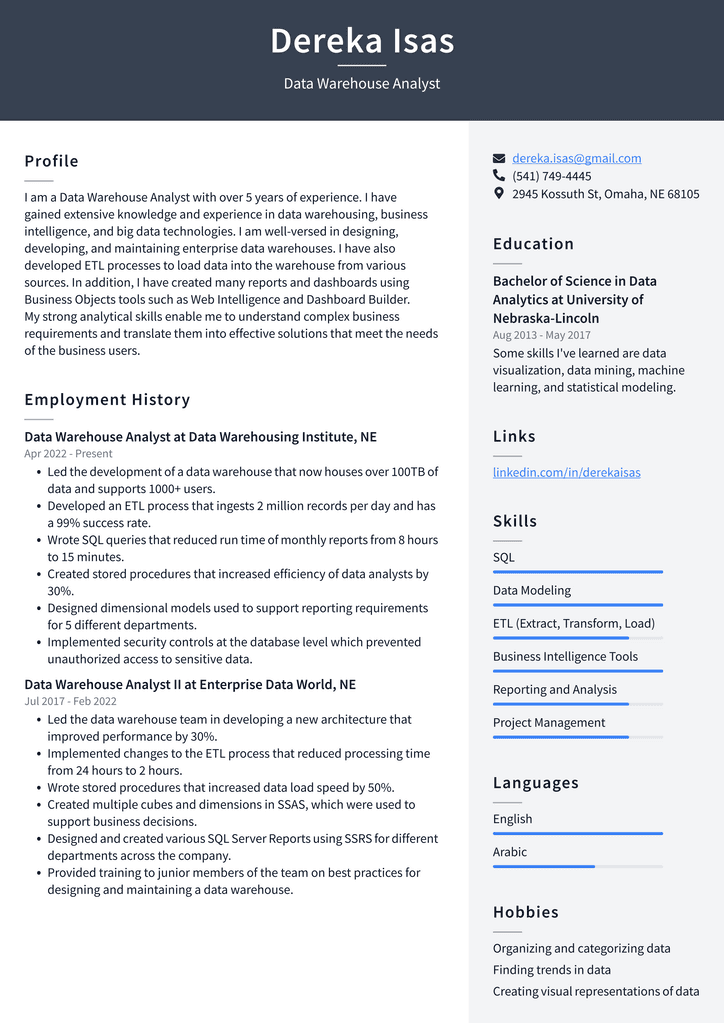
Download This Data Warehouse Analyst Resume as PDF
Data Mining Analyst Resume Example
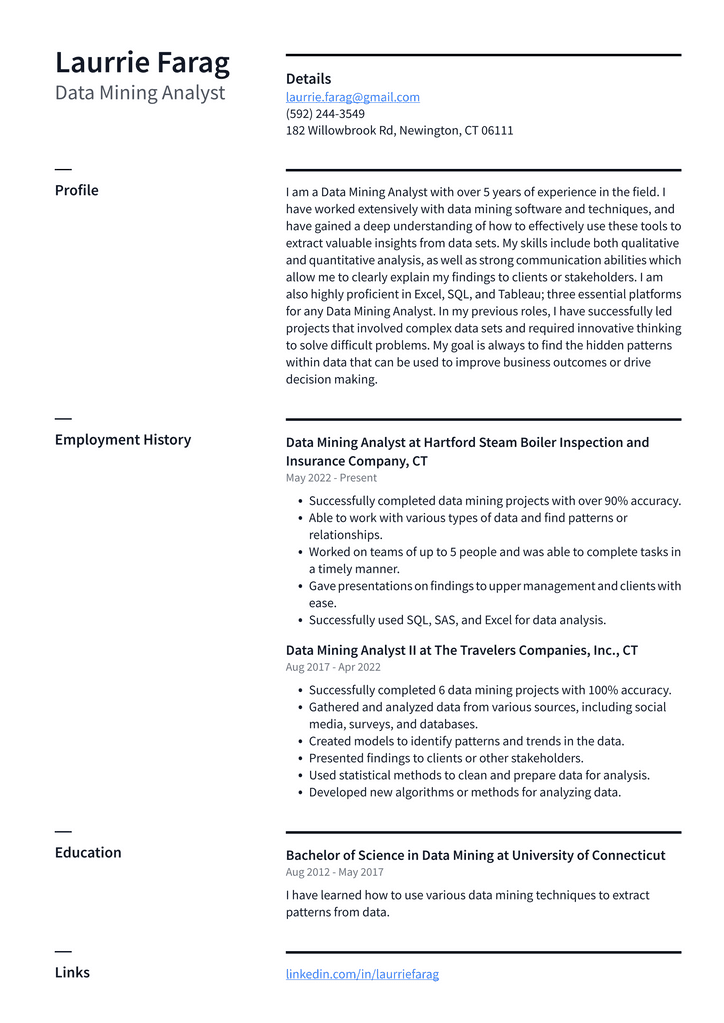
Download This Data Mining Analyst Resume as PDF
Big Data Analyst Resume Example
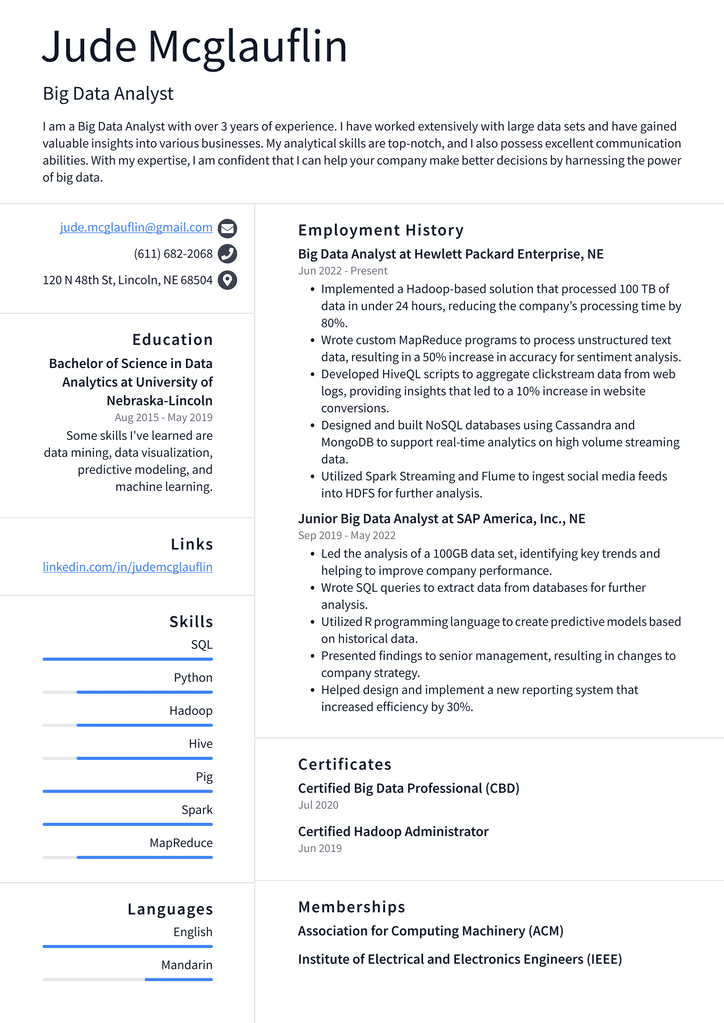
Download This Big Data Analyst Resume as PDF
Statistical Analyst Resume Example
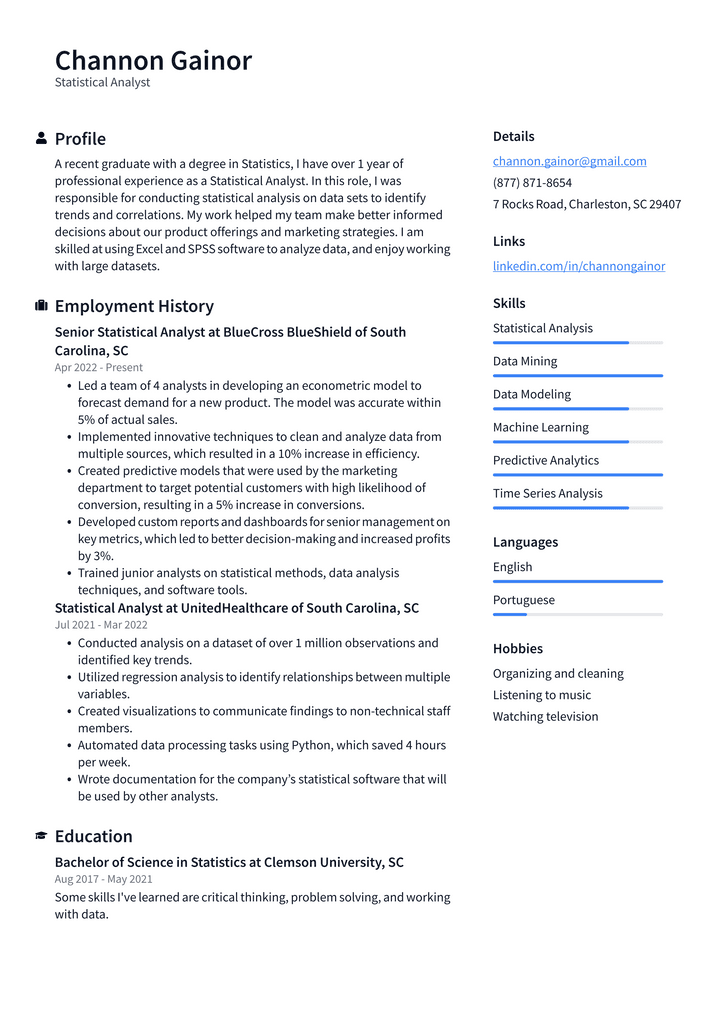
Download This Statistical Analyst Resume as PDF
Business Intelligence Analyst Resume Example
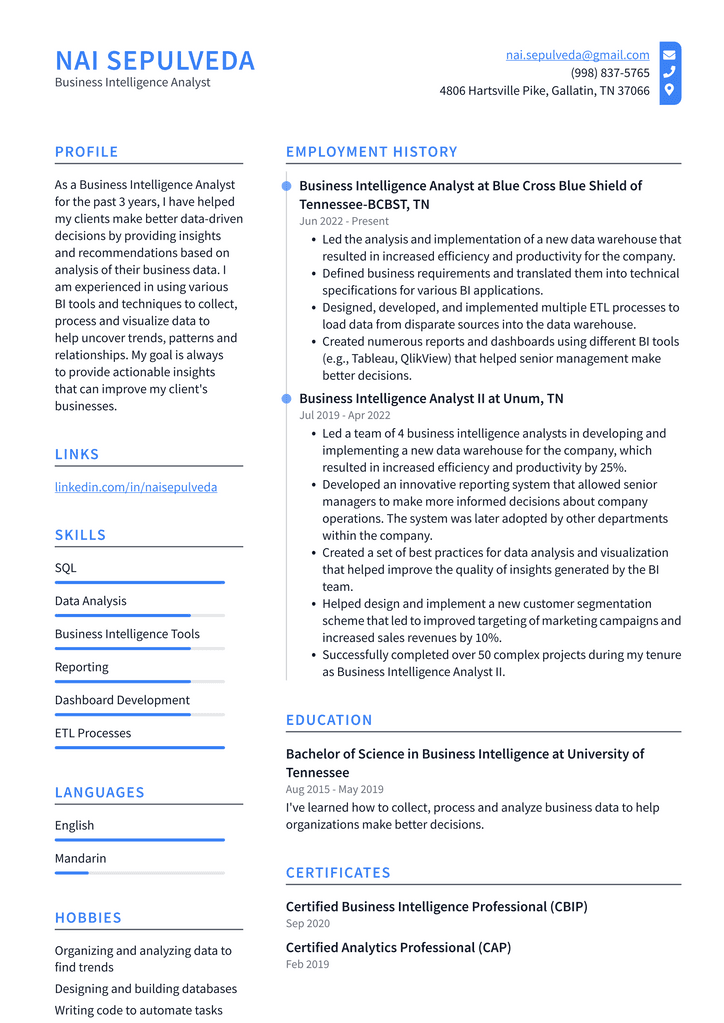
Download This Business Intelligence Analyst Resume as PDF
Market Research Analyst Resume Example
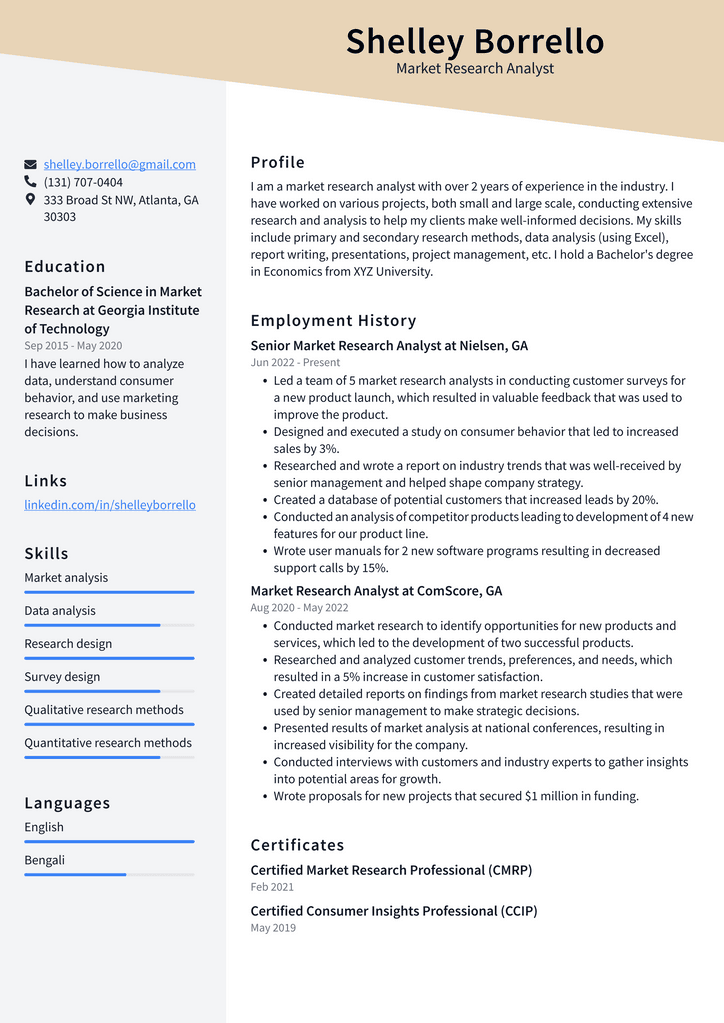
Download This Market Research Analyst Resume as PDF
Create a functional resume for Data Analyst positions
A functional resume lists all your skills and work experience on one page, regardless of the order in which you acquired those skills. This makes functional resumes ideal for data analyst positions because the skills you list on your resume will be the ones you use on the job every day. A functional resume is an excellent option for data analysts who are just starting and don’t have much work experience yet. It allows you to highlight your transferable skills and show potential employers what you can achieve right away.
List your most relevant skills first
The first section of your resume will be crucial to convincing an employer to call you for an interview. With a small amount of space to make an impact, it’s essential to prioritize your most relevant skills first. For example, as a data analyst, you’ll be responsible for various tasks, from collecting data to presenting your findings to coworkers and clients. Therefore, it’s essential to make sure you’re highlighting your most relevant skills first. You can list your skills in any order, but starting with your most relevant skills or the ones you think are most transferable from one industry to another is often helpful. For example, suppose you’re applying for a data analyst position at a marketing company but have experience analyzing data for an HR department. In that case, starting your resume with the skills relevant to the job you’re applying for is wise. On the other hand, if you’re starting your data analyst career and don’t have much pertinent experience yet, it’s a good idea to focus on the skills you often use in your current job.
Add a skills table to showcase all your skills
Remember that if you’re applying to data analyst positions at tech companies, they might be looking for software engineers who specialize in programming languages like Python, R, Scala, or SQL. In this case, you’ll want to add a table listing your software engineering skills. In addition, if you’re applying for a data analyst position at a tech company, you might be expected to have specific skills because the job requires them. For example, a data analyst at a tech company might be expected to know Python. If this applies to you, list your proficiency with the software or languages you’re expected to use.
Mention the tools you’re most proficient in
In addition to listing your most relevant skills, also make sure to list the tools you’re most proficient in using. Employers are interested in the devices you use on the job because they give insight into how you work and the level of productivity you can achieve. If you have experience with specific software like Tableau, R, or SQL, highlight it on your resume. You can also include other tools you might use, like databases or data visualization tools. Be sure to list the version number and its launch date if possible. This will let employers know you’re up-to-date with the most current tools in the industry.
Mention the type of data you’re most comfortable with analyzing
Different types of data analysts have different strengths. If you have experience analyzing certain types of data, such as health care, financial, or internet data, you should mention it on your resume. By letting you can demonstrate your expertise in a specific field, boyers know the type of data you’re most comfortable with analyzing; you can dem experience studying a particular data type; it’s wise to include that on your resume. If you don’t have expertise in analyzing specific types of data, don’t worry. You can still be a great data analyst.
Mention any unique soft skills you have
In addition to listing your skills and experience, it’s also a good idea to mention any unique soft skills you have that might not be apparent from a data analyst resume. While soft skills aren’t necessary for every data analyst position, they can certainly help you stand out from other applicants. When you’re writing your resume, mention any unique soft skills you have that can help you excel. For example, if you have strong communication skills, you might be able to help a team communicate more effectively. Or, if you have outstanding teamwork skills, you might be able to foster collaboration among coworkers. Soft skills are often overlooked, but they can make a huge difference in your career.
Conclusion
An effective data analyst resume should highlight your experience with data, software, and unique skills. Make sure to list your most relevant skills first and then indicate your proficiency with the tools you use the most. It’s also wise to mention the type of data you’re most comfortable with analyzing and any unique soft skills you have.